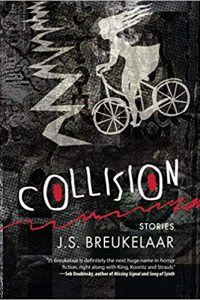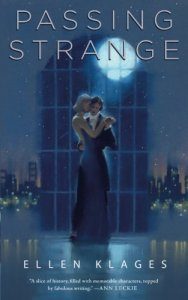Amy Goldschlager Reviews Audiobooks by Neil Fishman & Harvey Edelman and Margaret Atwood
 Spin: The Audiobook Musical, Neil Fishman & Harvey Edelman; narrated by Jim Dale and a full cast (HarperAudio and Blackstone Audio 978-153851884-7, $19.99, CD, 1.5 hr., unabridged [also available as a digital download]) January 2018.
Spin: The Audiobook Musical, Neil Fishman & Harvey Edelman; narrated by Jim Dale and a full cast (HarperAudio and Blackstone Audio 978-153851884-7, $19.99, CD, 1.5 hr., unabridged [also available as a digital download]) January 2018.
Angel Catbird, Margaret Atwood; performed by a full cast (Audible Studios, $21.83, digital download, 2.75 hr., unabridged) February 2018.
I admire the efforts of audiobook publishers to provide audio experiences that go beyond a written text, to provide a convincing audio landscape. But while I admire the attempt, that doesn’t mean they all work. Cases in point: Spin and Angel Catbird.
Spin is a musical adaptation of the fairy tale Rumpelstiltskin, with all the hard edges filed off. The miller who boasts his daughter Jane can spin gold into straw is a shy man intimidated into showing off by his bolder, more competitive friends. The king is poor and easily dominated by his shopaholic sisters (who, it turns out, will happily shop for the whole kingdom, not just themselves). And the trickster Rumpelstiltskin really just wants friends; he just doesn’t know how to go about it.
When I was eight or nine, I was totally devoted to more faithful and far bloodier versions of fairy tales; I am not entirely a fan of softening stories to this degree, even if that’s the current trend. But the actors are charming, the songs are catchy, and I am always a sucker for Jim Dale’s amused-sounding narration. This is a perfectly pleasant production that would be useful for family roadtrips, and an experiment that succeeds in providing a well-rounded audiobook experience.
On the other hand, Angel Catbird is the third graphic novel adapted for audio that I have tried to listen to, and I have come to the regretful conclusion that such adaptations are simply not for me. Audio publishers tend to throw a ton of money at the things, hiring a full cast of accomplished actors, composing music, and laying out a full array of sound effects. The result is a highly stylized (and to my ears, stilted) audio play, with an over-the-top, stagey narration reminiscent of the hokiest of old radio serials. It’s the aural equivalent of silent movies, with the heavy makeup and exaggerated facial expressions intended to play to the back of the theater.
It didn’t help that the plot – in which a sweetly nerdy scientist who turns into an owl-cat-human hybrid after an accident with a gene-splicing compound, must stymie the plots of his boss, a cackling and sexually predatory rat-human hybrid with an army of cybernetically enhanced rats – was also exaggerated and silly. Frankly, I couldn’t even get through it.
Adapting a comic book panel by panel seems to lead to choppy, disjointed storytelling. At the same time, there’s a certain amount of visual, unspoken nuance that gets lost in an audio-only adaptation. Contemporary film writers seem more able to establish a more organic flow in their comic-book adaptations; the visual medium, which obviates the need to describe the action, is presumably a great help in this regard.
Perhaps recommended for the visually impaired; everyone else can feel free to pass it by.
This review and more like it in the April 2018 issue of Locus.
 While you are here, please take a moment to support Locus with a one-time or recurring donation. We rely on reader donations to keep the magazine and site going, and would like to keep the site paywall free, but WE NEED YOUR FINANCIAL SUPPORT to continue quality coverage of the science fiction and fantasy field.
While you are here, please take a moment to support Locus with a one-time or recurring donation. We rely on reader donations to keep the magazine and site going, and would like to keep the site paywall free, but WE NEED YOUR FINANCIAL SUPPORT to continue quality coverage of the science fiction and fantasy field.





